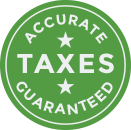Exempt or Nonexempt? Actual Job Duties Matter, Not Job Title
Determining an employee’s proper classification requires a fact-driven assessment that looks beyond a job description and examines exactly what the employee does on a daily basis and performed during the last two years. It is not uncommon for an employer to state, “we pay all of our employees as salaried or a set rate for…
Three Administrative Steps when Hiring Employees
Step 1. Set up Records for Withholding Taxes According to the IRS, you must keep records of employment taxes for at least four years. Keeping good records can also help you monitor the progress of your church, financial statements, identify sources of receipts, keep track of expenses, and payroll tax returns, etc. Below are three types of withholding taxes you…
Box 14 of the W2 Form
Box 14 of the W2 Form is often viewed as an optional box by secular employers to report miscellaneous information to their employees. However, due to the complexity of clergy tax law, it has always been highly recommended by the IRS and an industry standard to report housing allowance in box 14. This best practice…
How long should we keep employment records
We always recommend to keep all employment tax records for at least six years after filing the 4th quarter for the year. Records should include: Your employer identification number. Amounts and dates of all wage, annuity, and pension payments. The fair market value of in-kind wages paid. Names, addresses, social security numbers, and occupations of…






